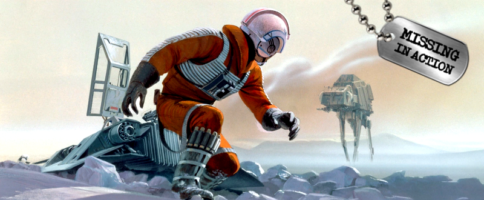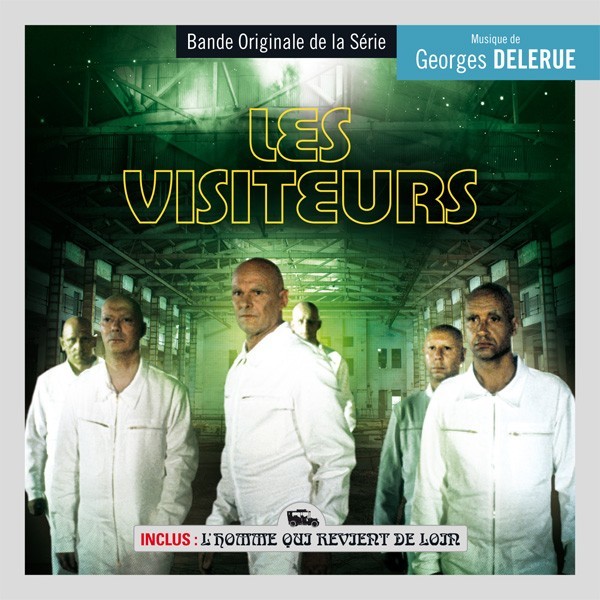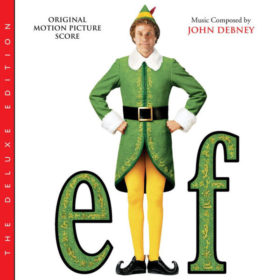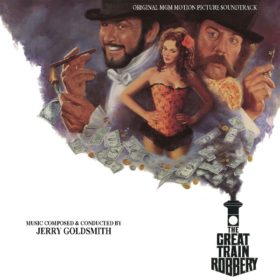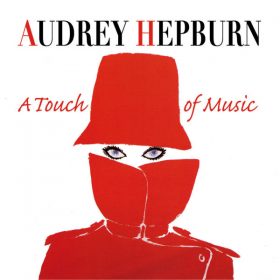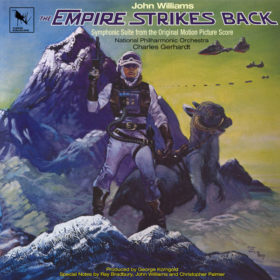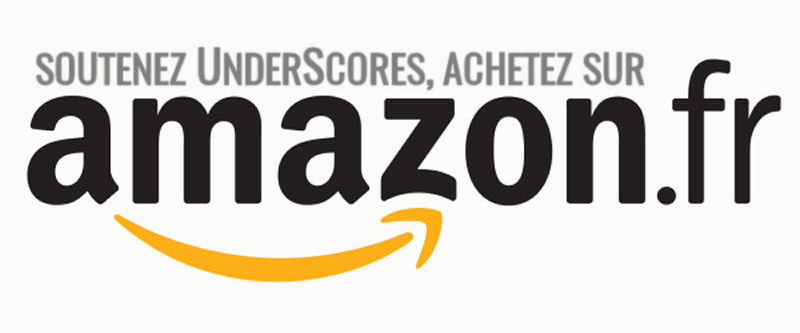Do you balance the money and artistic aspects before deciding to greenlight the projects?
I definitely have to balance the financial aspects of the projects with artistic aspects, and make a decision based on that. But that’s not to say that either one of them rules everything. It’s all about the balance, and it’s also a case where I do make decisions even knowing that I might most likely lose money on a project. But some projects are worth that, and I’m comfortable with that: it’s the big picture that has to make sense. I have to get to the end of each year and have things be positive because that’s what is going to allow me to continue doing more and more. So there has to be always a fiscal responsibility, I take that very seriously, but at the same time, it’s not a situation where on any one particular project, it needs to guarantee either covering itself or making money… Because I will make decisions knowing, or very much expecting, that things are not going to turn out so well.
How do you manage to build the relationships with the composers, the studios and the rights owners?
The rights are usually controlled by the film studios. It’s the composer and the film studio that I would be involved with on any single project for a new film. Luckily, in a situation where everything is kind of streamlined, expedited in that regard, the studios that I’ve been working with for so long have business affairs, people and lawyers along with music department, directors and people that handle artistic aspects of a film… I know them all along the process. For example, if I’m doing a new film at Warner Bros, the whole deal process can be condensed in two minutes because we just do what we did last time. There might be a particular detail of the project which needs to be adjusted, it’s pretty simple, it’s a not a case of reinventing the wheel every time or trying to accomplish something or overkill on something, over thinking it…
There are situations with more inexperienced film companies that are usually the cause of more problems than anything, because when I’m working at Warner Bros. or at Fox, they know how it’s done. But sometimes, the smaller film production companies don’t really know what they’re doing, they’re not focused enough, they don’t know what things need to be taken very seriously and what things can just be left along because they don’t really matter, and so they just have misplaced priorities sometimes. In those cases, I feel kind of like I’m conducting class because, by virtue of how many albums and how many of these things I’ve done, it helps if they’re at least cognizant of that and respect that. I can help teach them if they’re more open to it rather than them being overly ignorant, then it can really be a problem because they’re coming with suspicions that they shouldn’t have and they’re just completely lost, and you try to help them and they cannot even see how you’re trying to help them. Some of those situations are the source of the greater frustration. But for all the major studios, we just have so much history and such a long working relationship that I think people would be surprised how truly easy and effortless that aspect of it is. It’s nice to just cut through all the things that you can cut through and then focus on what you should be putting your time into which is making a great album.
When you release a complete score, is the existence of a previous release a good thing, or a problem?
Every picture is going to be its own case. Maybe a good example of that would be Total Recall. I did an initial Total Recall album which was about 40 minutes, but then many years later I did Total Recall, the Deluxe Edition, and expanded it up towards 70 minutes. Certainly, our rights were still intact from the initial album and that allowed the opportunity of doing this special edition of it. It would be less likely for me to be involved in something and doing a Deluxe Edition if the earlier album was on another label, but not always. When I did Home Alone 2, John Williams’ score, the earlier album had been on Fox Records, but they were no longer in existence, so through Fox studios we did a special edition, a two discs set in that case. The Fury was one I expanded, I did a CD of the original album recording, back in the early nineties, and then years later, I did a 2 CD set where we had the film soundtrack original recording plus the album recording. Hawaï was one of those where we included the film soundtrack and the earlier album recording as part of the same package. We did multiple Vertigo albums. So everything is its own case. But if a score was released from a company that doesn’t want to relinquish those rights and still holds them, then that can be a problem because we end up been prohibited from doing the album that really should have existed and should still exist, but because a studio or record label won’t cooperate, then there are definitely some projects that haven’t been able to proceed because of an earlier album existence.
Why do you release limited editions? How do you decide how many copies will be available?
The decision process about limited editions comes from wanting to be able to put as many funds as possible into the actual production of the album. If it’s a score where I know or suspect that its sales limitation might be at whatever threshold, 1000, 2000 ,3000, then it’s best to position or structure the release of the album so as much as the income from the sales of the album come to the record label, Varèse Sarabande in our case, as possible because if I’m producing an album and the majority of the money is going to be put into the pocket of a record store then that doesn’t help the production of the album, and it doesn’t help the production of future albums. In order to pay the cost that some of these productions require, the limited edition process is really the only one that makes it feasible. I came up with the idea very early on for the firsts Masters Film Music release that I did, like The Boys From Brazil, the Jerry Goldsmith Suites & Themes album, the Bernard Herrmann Concerts Suites boxset and Obsession, back in the late eighties and the early nineties. Ultimately that was the birth of what has become the whole limited editions era of soundtracks today.
How many units do you sell for a regular release?
There really is not such a thing as regular. Things are so widespread in that regard. There are titles that sell a few thousand to a few more thousand to many thousand to tens of thousands. It’s changing all the time but it’s also changing amongst projects. There is such a wide range of projects. There’s nothing that is regular, there is nothing that is normal, and every project has its own story. I can have very high sales and also very low sales.
Do you consider low sales as a failure?
No. There are titles that certainly sold far much more poorly that I would have anticipated, but if it’s a wonderful album, I still look at it and go: « You know what? I would not do anything differently, I’m so glad I did that album ». Even if it sold only 300 copies, I would be sad that more people didn’t get to hear it because it’s something I believe so much in, and I want more people to be exposed to it and to be introduced to a composer or a score, but I can’t force them. All I can do is make it available and hope that one way or another, people will discover what’s worth discovering.
What are your relationships with other film music labels?
I don’t really have any relationships with them. I certainly know of their work and admire some of them particularly. They’re all different labels, so I have different feelings about each of them. I enjoy film music as a fan like everyone else. So sometimes I listen to an album and think of what I might do differently, but more often than not, certainly with labels like FSM or Intrada, I get a release of theirs, and I’m just very impressed and enjoy it like everyone else. I like working on as many albums as possible, but at the same time it’s nice not to have to do everything. So I get to sit back and just enjoy the fact that someone else puts so much effort into this, and to enjoy it and be grateful.
Is it easier or harder to release scores now, compared to 10 or 20 years ago?
It’s a complicated question: it’s easier in some regards, and it’s difficult in some regards. But I’m doing so many releases, I solved so many problems that needed to be solved to proceed with so many of these releases, so from that standpoint I suppose things are easier. So yeah, overall I’d say it’s easier.
What was the impact of the internet on your line of work?
The impact is still going on. Things continue to change. I think it helps things in some regard, it has made the whole mail order process and order collecting aspect of things that much easier, but at the same time the technology has allowed for legal downloading, iTunes, Amazon and things like that and it also opens the door so much for illegal activities of people, which is something that I just don’t understand, people who claim themselves to be fans of the music but then take part in stealing it essentially, and it reduces the sales, it’s making producing film music progressively harder because there’s so much of that going on. I think so many people justify it by thinking « Oh well, it’s just me, I don’t have that much of an impact », but when you have so many people looking at it from that standpoint, that’s one of the great evils or hurdles that film music faces in the future. If we can’t rely on selling CDs as a way to produce these things, then they won’t be produced in the first place, they can’t be. And the first people that would be complaining about fewer things being released would be the people that won’t be helping or stealing from the process in the first place…
But most of the fans want to own the CD and are not interested in downloading the music…
It’s not just within the real dedicated fan base. We do so many things where we know they’re not going to make money, but we need the titles that actually do have the capacity for reaching a wider audience to make money in that way because those projects need to support the ones that can’t take care of themselves. But when they’re selling so much fewer… Even though our bestselling album this year is Michael Giacchino’new Star Trek score, if this had happened and if we had released the same album with the same degree of success of the film and all that and that came up ten years earlier, we would have sold a lot more than we do today. And even if you look at it in the context of digital sales adding so many units to the total of the album, it still doesn’t account for the number of sales that are lost, using the same technology ironically.
In your opinion, how many film music lovers is there around the world?
Again I don’t know if there is an answer to that question because I think that there are certain scores that reach a much wider audience and you just have to categorize exactly what the perimeter of the question you’re asking really mean. Are we talking about really dedicated film music aficionados who buy everything or are we talking about aficionados who can buy half of everything, or when there is big famous new score like The Last Of The Mohicans or John Barry’s Out of Africa or something that reaches much wider than the perimeter of general film music market that exposes film music to a much more wider audience? Then you can start selling or reaching tens of thousands or hundreds of thousands of people, so it’s always different. You just need to have a realistic picture of what we can expect from things and not to take too many steps into a blind path, you need to have a clear enough idea of what you can expect. I’m proceeding accordingly, releasing as much music as possible, as much good music as possible and have things make enough financial sense as to carry on.
As a film music producer, how do you see the future?
Well, hopefully, maintaining the way things are, always doing new things and working with the composers in all aspects of their careers, not just producing the albums but also been involved, inviting my friends to festivals, all the aspects of helping to promote and share their music with the fans around the world. I love having the opportunity to be in Ubeda and encounter fans and talk with them about music, sharing and hearing what albums they like, and anything that’s on their mind, and just everyone being together and celebrating what we all love in this fantastic place.











